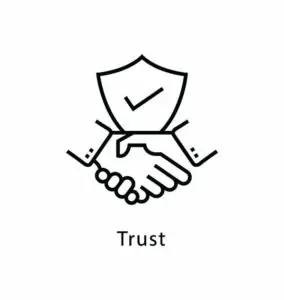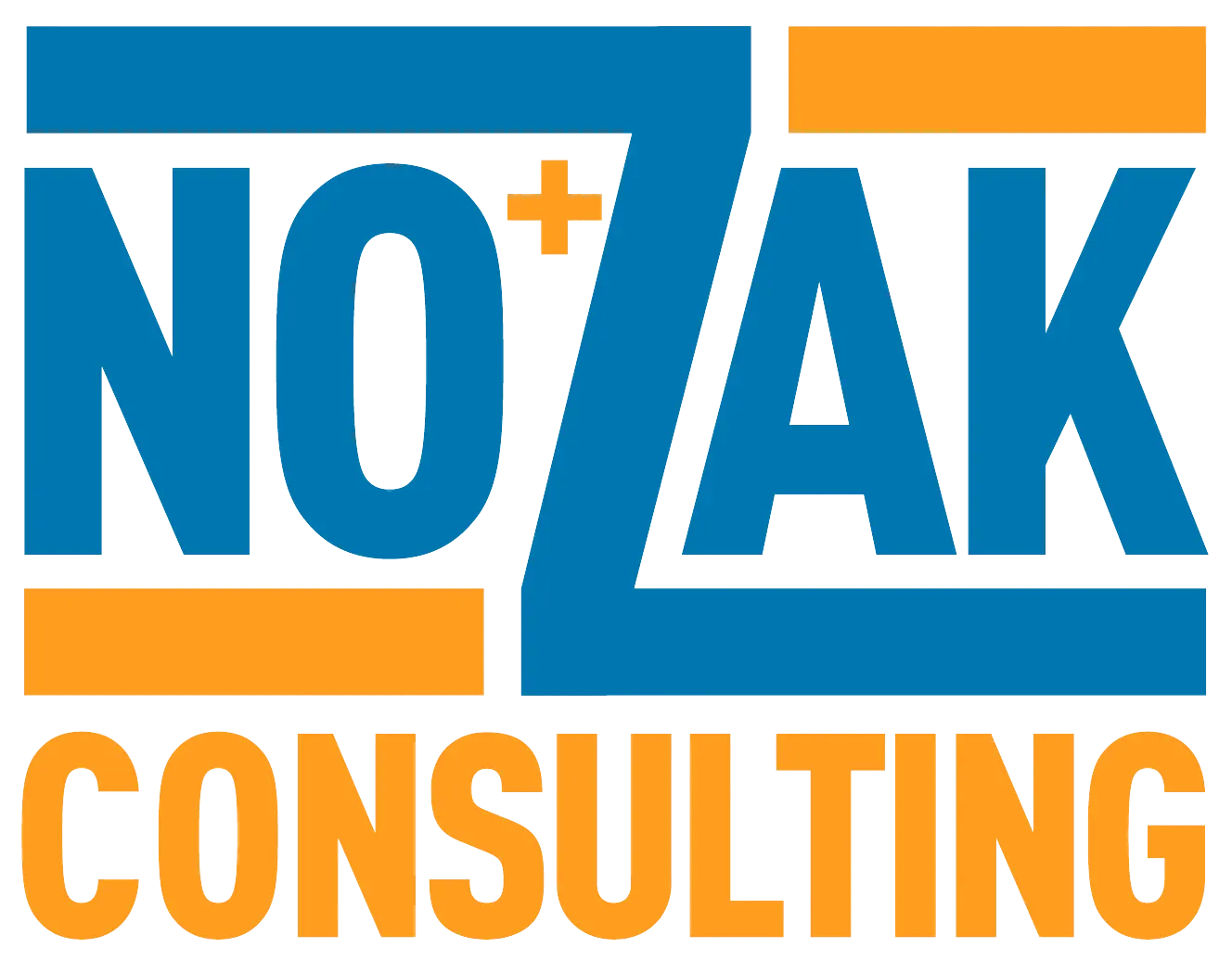What EAT Stands For and Why it Matters

E-A-T is an acronym that stands for Experience, Authority, and Trustworthiness. It was first mentioned in Googles Search Quality Guidelines in 2014, and essentially sets out a foundation by which Google ranks the overall quality of a website. It takes into account a huge range of factors and gives each website an E-A-T Score. Don’t understand all of the language in this post check out our SEO Related Language dictionary>
Simply put, better content equates to higher rankings. Google’s E-A-T rating (broad core algorithm update) helps to maintain the usefulness of the results that are presented to the wider population after they input a search query into Googs.
The logic behind what E-A-T means for a web property is essentially a grading of the content for organic ranking purposes. Google recognizes the importance of serving their users with credible content when they make a search on the Google search engine, and E-A-T is a top consideration when algorithms rank the overall quality of a web page and where.
Now you know a little bit more about Google’s E-A-T considerations, we’ll explain why E-A-T matters so much.

Googles Quality Rater Guidelines don’t actually determine the individual rankings of a specific website. However, Google EAT rating creates a picture of overall site value, along with its (perceived) ability to provide a good experience to users; it also ensures the website meets google content standards. If the content on a website is considered to be shareable, readable, and recommendable; this will help your site to have an improved Google E-A-T score.
Google E-A-T can impact the way Google receives and even rates it. Needless to say, understanding what E-A-T means for a website and its content is imperative. It should be treated as the framework for the content strategy, which in the end, is, hopefully, compelling a person to do business with you.
Defining Expertise in E-A-T
Obviating expertise through the share of knowledge, to do’s, complete guides, and reviews are the keys to a higher expertise raing. This means demonstrating skill through content and refer to this content where possible. Content is how we display expert knowledge in an algorithmically-interpreted search result. And the following items are algorithmically measurable: usefulness, relevancy, and truthfulness. The more boxes your information can check, the more your content will be viewed as having expertise.
Side note, while it is less important for websites that focus on gossip or humor; in the world of business, and for companies that operate in the legal, medical, or financial sector, for instance, this is fundamental.
Defining Authority in E-A-T
Do your pages demonstrate that you or the creator of the main content on the site has authoritativeness? This can either come from the authority of your writers or from your site in general. What’s more, if you have a blog or any community pages, the overall quality of the conversation can also boost the authority factor – alternatively they can reduce the credibility as well. Users that comment should be logged in with verifiable credentials, the same rules apply for reviews, and content creation. How do you build authority using SEO tactics? Link-building, searchable content, collabs & guest blogs, mobile friendly UI’s, low bounce rates, optimized social profiles, unique style and web presentations, and high quality content.
Defining Trustworthy in E-A-T
Passing this check requires demonstrating to visitors that the site can be trusted (HTTPS), along with the accurate content. Especially for a website that sells products, services or who take payments online’ trustworthiness is essential. Every aspect of your site needs to instill trust in the visitors and make them feel safe when they are on the site. The presence of an SSL certificate is an absolute minimum.

How Can I Improve My Google Content While Considering EAT?
Whether you’re an agency writing content for clients or you manage your own website, writing with Google’s E-A-T markers at the forefront of your mind will yield positive rankings for your content (supposedly).
Follow these practical steps to establish E-A-T in your site content and look for boosted SERP positioning over time.
Additional reading:
- How Do I switch off my login screen password
- Mobile First Indexing
- A review of the Yoast Training
- How Do I use LinkedIn for business?
How to Establish Expertise Within Your Content
In a world that is full of self-proclaiming experts, you need to ask yourself ‘who’ the experts actually are. These will be the individuals who know the most information and have experience in the industry you serve. If they aren’t writing content, then find a way to engage them, ask them for content reviews, to be cited by them, or cite them as a source. Wonder why the successful blogs link out to tons of other resources? Because this gives the article credibility by referencing those that are credible in the space.
The Google Search Quality Guidance section states there are two different categories of expertise that they consider.
- Everyday Expertise
Their guidelines state that for some subjects, the experts could be someone who is simply sharing a life experience with others via a forum, blog, discussion or a review.
- Formal Expertise
This is especially relevant for the business world in industries such as legal, medical, and financial markets. A certified professional is considered to be a credible expert. Web properties are at risk if any information that is published is incorrect or low quality, so pay careful attention to the citing of sources as they must, themselves, be accurate too.
We will talk in detail about YMYL and what it means at a later point in this article. However, for these sectors, the expertise of a journalist or professional writer is essential.
Tip: Journalists and Professional Writers are skilled in the collection of date and the undertaking of thorough fact-checking prior to writing content. You might even be able to find a writer that is skilled in your particular niche/sector. You might want to build an internal team, work with an agency or even use freelancers to develop expert content.
How Do I Establish Authority?
There are a couple of things you can do to help boost your E-A-T score and become authoritative. If you have decided to work with expert content creators, then make sure they have a bio page which details who they are and their relevant experience. You can display your team credentials in a number of ways on your website with ease.
- Link to their professional website
- Add the job title of the Author to their by-line
- Write a short bio at the start or end of the article
In the previous section, we defined expertise and spoke a little about the things you can do to improve these factors within your website content. If you are sharing everyday expertise or personal experiences, then credentials and certifications aren’t really that important.
If the content on your website is being written by professional writers who might not necessarily be considered experts in their field, you can still create a bio for them as it adds a certain human element to the content piece.
The Importance of Research
Regardless of whether or not you hire industry experts to write for your website or blog; thorough research and the correct attribution can go a long way in demonstrating the accuracy of any data that you publish. Any sources should also be linked to the relevant anchor text as well.
Choose your sources as high-quality backlinks will work in your favor.
From the perspective of the user who is accessing your site, linking to any research can make it easier for them to see the originating source and add trust.
Reputation Management Matters Too
The vast majority of consumers are web-savvy and well versed with checking out the background of a business before they part with their money. As such, you can expect them to check out your reviews prior to any transaction taking place. Reviews add or detract from your online reputation and they can have a significant impact (positive or negative) on whether or not a person decides to do business with you, along with impacting your Google Quality Rating as well.
Specifically, the Google Search Quality Guidelines indicate that overall user engagement, popularity, and online user reviews can all be used ‘evidentially’ where reputation is concerned.
Stay active, monitor all your customer contact channels and reply quickly and effectively to any concerns or complaints, before they escalate into negative reviews. Google takes a sensible approach to this, and it reviews the bigger picture rather than penalizing your site for a couple of poor reviews. However, they will factor any negative reviews into their overall quality score; as such, it is also best to try and prevent something from reaching this point of no return where your online reputation is negatively impacted.
How Do I Establish Trust?
Building trust takes time; it’s the same with any relationship really. Irrespective of your industry, building trust needs to start from the moment a visitor arrives on the site. Using HTTPS and SSL are two absolutely minimal requirements, no questions asked, you need these to make your visitors feel safe.
If your website takes any payment, personal, or other financial data, you need to reassure them that their information is safe. If you have any policies that relate to privacy, then make sure these are linked to and easily accessible from the site.
If you are fully-insured or carry industry-specific accreditations or certifications, then make sure that these are clearly visible to visitors.
Stay Relevant and Write with your Customers in Mind.
When writing content with E-A-T in mind, you should always consider user intent, rather than trying to write to improve total organic keywords ranked for. It is a common misconception that stuffing content with keywords can help increase your SEO positioning (2005 SEO). SEO guidelines outline penalties for these types of abuses. Instead, consider the questions and concerns your target audience will have, and address those directly in your content. Google Rater Guidelines hints that the algorithms will reward content that is relevant and meaningful in these ways.
Keyword use is still important for adhering to the Google search quality guidelines, but it should be done subtly, in a way that makes sense, and in a manner that naturally fits the context of what you are writing about.
When your content helps visitors get answers to their questions or helps them to learn something new, this build trust.
Want to Learn More? Check out these additional resources on E-A-T from Search Engine Journal and Search Engine Watch.
Be Supportive and Be Visible
Focus on making it easy for people to be able to contact a real person if they need help with something. While including your contact information might seem like a very basic step, this information establishes trust as it ads a human element to the mix.
Your About Us page is also a great way to define trust and an opportunity to tell visitors who you are and what your business stands for. It adds a personal touch to your business storefront and often adding pictures of your staff helps visitors to connect more easily with your company.
What is YMYL?
This is another famous Google acronym; it stands for ‘Your Money or Your Life.’ The reason we are covering this within our Google EAT post is that YMYL and EAT are closely intertwined.
YMYL pages will typically serve Google content that covers legal, medical, and financial advice. They can be anything from a parenting blog that offers advice, a financial organization offering tips on investments, an e-commerce store that wants your payment information or even a medical site that offers advice on specific medical conditions.
Any highly-ranking YMYL pages on Google will typically demonstrate a superior Google E-A-T score. The core reasons being that these pages facilitate a feeling of trust, and the content will almost always meet the precise needs of their search query.
These types of pages have a superior quality rating standard than traditional webpages, and YMYL was introduced by Google in order to safeguard users from poor quality content that complex in nature which does not have the required levels of Google E-A-T.
Eight Things You Can Do Today To Boost Your E-A-T Score
Here are some quick and easy implementations you can make on your website to improve your E-A-T Score and better serve the needs of your customers and prospects alike.
- Make sure you have Author bio’s or by-lines created that demonstrate their credentials and experience.
- Ensure you have an SSL i.e HTTPS protocol on your website as a minimum
- Have clearly published privacy and security policies on your website
- Make sure your contact information is visible on every page
- Make sure you moderate any user-generated content
- Encourage online reviews from your existing clients to improve your brand reputation
- If you are referencing external sources of data on your website make sure they are correctly cited using anchor text and hyperlinks
- Write a blog that offers relevant and useful information to your target audience and customer base
In Summary
A good E-A-T score isn’t something that you can obtain overnight. Google factors content that is available both on a site-level as well as on a page-level; as such, you need to make sure that each and every element of your website is created and written with E-A-T in mind. For those who fall into the YMYL category, and who offer advice, the case for good E-A-T practices is even more important.
According to Google, if a website or webpage is found to be lacking in what it defines as E-A-T, it is viewed as a sufficient reason to mark the particular page with a low-quality ranking.
What have you experienced in regard to positive or negative factors that effect a webpages E-A-T?
About The Author:
Elizabeth is a Master of the English language with a relentless passion for research and an eye
for detail that surpasses normality.
Having worked within the private sector for many well-known corporations, she gained direct
experience within finance, insurance, education, eCommerce, and the IT sector. Communication
has always been fundamental to her success in roles that spanned sales, marketing, support,
product, business, and channel management.
For the past five years, she has committed herself fully to the role of lead copywriter and
researcher; combining a plethora of skills and experience from her past, to deliver word-perfect,
well-researched professional content that compels readers and inspires them to take action.
Her words make an impact and leave a lasting impression.
Based in the beautiful City of Cambridge, England; Elizabeth is a devoted mum, a life-long F1
enthusiast, and loves to spend time outdoors.
